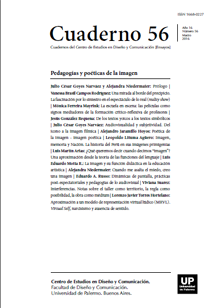De los textos yoicos a los textos simbólicos
Abstract
This article is part of the first two sessions of the seminar Psychoanalysis and Textual Analysis taught at the School of Information Sciences at the Complutense University of Madrid (2011/2012). The paper analyze those films that as Rear Window (1954), Vertigo (1958) and Psycho (1960) Alfred Hitchcock mobilize the unconscious and left a deep impression on viewers; it happens, however, that memory can not access those strokes of filmic enunciation that are remembered and partially distorted because the emotional burdens have been displaced. Beyond the semiotic order and communication process that unfolds the cognitive, textual analysis realizes the meaning of the journey of the subject by the film text that is primarily an aesthetic experience of a symbolic knowledge. The scope of the subject’s experience and the work of his desire to appear as a theoretical and methodological challenge to the culture of the image or links to education.
References
Barthes, R. (2009). El susurro del lenguaje. Barcelona: Paidós.
Freud, S. (2000). La interpretación de los sueños. Edición centenario [1900-2000]. Traducción José Luis López Ballesteros y de Torres. Madrid: Editorial Biblioteca Nueva.
González Requena, J. (2006). Clásico, manierista, posclásico. Los modos del relato en el cine de Hollywood. Valladolid: Castilla Ediciones.
González Requena, J. (1996). El texto: Los tres registros y una dimensión. En: revista Trama & Fondo, No.1. Valladolid: Asociación Trama y Fondo. Versión digital: http://dl.dropbox.com/u/60156832/numeros_revista/Trama_y_Fondo_1.pdf
González Requena, J. (1999). El discurso televisivo: espectáculo de la posmodernidad, Madrid: Cátedra.
González Requena, J. (Comp.). (1995). El análisis cinematográfico (Modelos teóricos, metodologías, ejercicios de análisis). Madrid: Universidad Complutense, editorial Complutense.
Lacan, J.(1971). Función y campo de la palabra y del lenguaje en psicoanálisis (1966), en Escritos. México: Siglo XXI.
Los autores/as que publiquen en esta revista ceden los derechos de autor y de publicación a "Cuadernos del Centro de Estudios de Diseño y Comunicación", Aceptando el registro de su trabajo bajo una licencia de atribución de Creative Commons, que permite a terceros utilizar lo publicado siempre que de el crédito pertinente a los autores y a esta revista.


